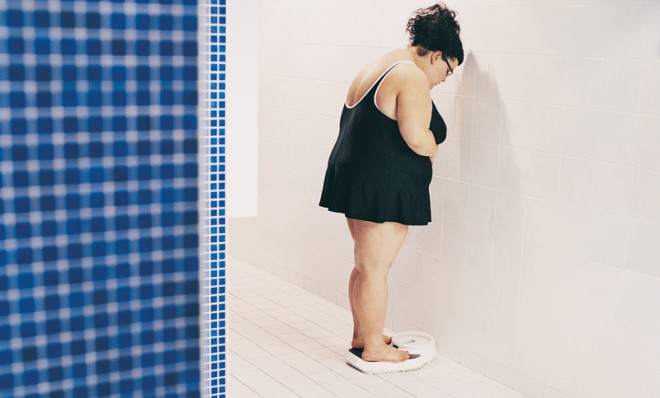The cruel, predictable outcome of fat-shaming
Guess what? Humiliation doesn't encourage people to get in shape.


A free daily email with the biggest news stories of the day – and the best features from TheWeek.com
You are now subscribed
Your newsletter sign-up was successful
We all know that body image is a national obsession, with every movie poster and magazine ad bombarding Americans with the message that slim people are beautiful. As a result, note the authors of a new study published in PLOS One, obese people often get the message that others perceive them as lazy, unsuccessful, and weak.
Predictably enough, all that fat-shaming hasn't inspired us to get trim and healthy; in fact, it's had the opposite effect. People interviewed for the study who were not obese when it began, in 2006, were two and a half times more likely to wind up obese four years later if they had faced some form of discrimination or humiliation related to their size. And those who started out obese were three times more likely to remain so if they were subjected to fat-shaming.
"Weight discrimination, in addition to being hurtful and demeaning, has real consequences for the individual's physical health," says study author Angelina Sutin, a psychologist and assistant professor at the Florida State University College of Medicine in Tallahassee, Fla.
The Week
Escape your echo chamber. Get the facts behind the news, plus analysis from multiple perspectives.

Sign up for The Week's Free Newsletters
From our morning news briefing to a weekly Good News Newsletter, get the best of The Week delivered directly to your inbox.
From our morning news briefing to a weekly Good News Newsletter, get the best of The Week delivered directly to your inbox.
The researchers have merely confirmed what we already knew — humiliation does no one any good. "So the takeaway from this is that being super negative to people will not yield positive results. Shocking!" says Tracie Egan Morrissey at Jezebel.
"Stigma and discrimination are really stressors, and, unfortunately, for many people, they're chronic stressors," Rebecca Puhl, deputy director of the Rudd Center for Food Policy and Obesity at Yale University, tells Today. "And we know that eating is a common reaction to stress and anxiety — that people often engage in more food consumption or more binge eating in response to stressors."
Still, notes Melissa Dahl at Today, many people — including some medical ethics professors — argue that people need to get some kind of negative messaging about obesity, because it can lead to serious health problems and even early death. One way to do that is to treat obesity as a disease, as the American Medical Association officially began doing last month. That gets across the need to combat obesity without getting personal about it.
Will that help? Maybe. Unhealthy eating and exercise habits develop over a lifetime, so improving them takes patience, experts say. One key, says Sy Mukherjee at Think Progress, is starting early, and being positive. "Having parents talk to their children about healthy nutrition habits," Mukherjee says, "is much more effective in curbing childhood obesity than talking to them about weight."
A free daily email with the biggest news stories of the day – and the best features from TheWeek.com
Harold Maass is a contributing editor at The Week. He has been writing for The Week since the 2001 debut of the U.S. print edition and served as editor of TheWeek.com when it launched in 2008. Harold started his career as a newspaper reporter in South Florida and Haiti. He has previously worked for a variety of news outlets, including The Miami Herald, ABC News and Fox News, and for several years wrote a daily roundup of financial news for The Week and Yahoo Finance.
-
 Political cartoons for February 16
Political cartoons for February 16Cartoons Monday’s political cartoons include President's Day, a valentine from the Epstein files, and more
-
 Regent Hong Kong: a tranquil haven with a prime waterfront spot
Regent Hong Kong: a tranquil haven with a prime waterfront spotThe Week Recommends The trendy hotel recently underwent an extensive two-year revamp
-
 The problem with diagnosing profound autism
The problem with diagnosing profound autismThe Explainer Experts are reconsidering the idea of autism as a spectrum, which could impact diagnoses and policy making for the condition
